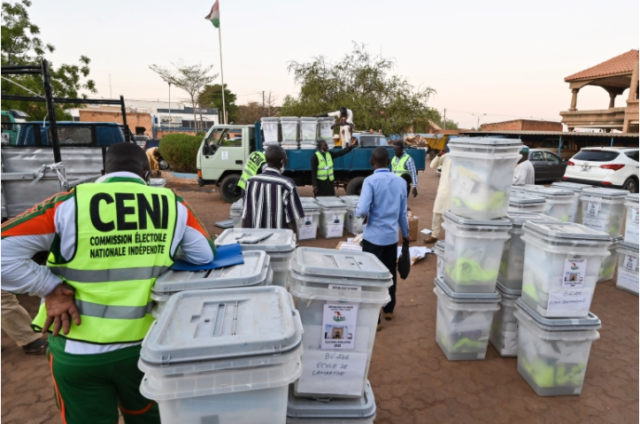Some 7.4 million people are registered to vote for the new president, the ballot coinciding with legislative elections.
Polls have opened in Niger where people are voting in an election that is expected to lead to the first transfer of power between two democratically elected presidents in a country reeling from violence.
Former Minister of the Interior Mohamed Bazoum, the ruling party’s candidate, is the overwhelming favourite to succeed President Mahamadou Issoufou, who is stepping down after two five-year terms leading the largely desert country of 23 million.
Bazoum, 60, has promised continuity with Issoufou’s policies, while also vowing to clean up pervasive corruption.
He faces 29 other candidates, who will hope to force a second round by denying him an outright majority of the vote.
Hama Amadou, who finished runner-up in the last election, was barred from running because of a criminal conviction, leaving the opposition without an obvious figurehead until last week, when his party called on its supporters to turn out for Mahamane Ousmane, who was president from 1993 to 1996.
Al Jazeera’s Ahmed Idris, reporting from Niamey, said President Issoufou was seen entering a polling centre in the city to cast his ballot.
Meanwhile, in other parts of Niamey, voting has been “progressing peacefully and in an orderly manner,” Idris said.
“What we noticed at the start of the day is that the process is slow – people didn’t come out so early in the morning, but elections officials are telling us the numbers will pick up as the day progresses,” he said.
Approximately 7.4 million people are registered to vote for the new president, a race that coincides with legislative elections.
Campaigning has been overshadowed by the issue of security in a country that has suffered repeated attacks near its borders with Mali and Burkina Faso from fighters linked to al-Qaeda and ISIL (ISIS). Near its southeastern border with Nigeria, it faces attacks from Boko Haram.
Hundreds of soldiers and civilians have been killed in the last year.
The economic situation is also critical. More than 40 percent of the population lives in extreme poverty, and the COVID-19 pandemic has slowed growth to a crawl, compounding the effects of climate change and low prices for its top export, uranium.
A peaceful transfer of power would be a milestone for Niger, which has experienced four coups since gaining independence from France in 1960.
The army has been deployed for Sunday’s vote, authorities say.
“Sporadic attacks will not prevent the stage of the elections,” a spokesman said on Thursday.
Latest Stories
-
Meghan Netflix show delayed over LA wildfires
14 minutes -
Kwesi Nyantakyi: How the new Sports & Recreation Ministry can transform the Youth
3 hours -
Barca fights back to beat Real Madrid 5-2 for Spanish Super Cup success
4 hours -
Photos: Mahama joins National Prayer and Thanksgiving Service
4 hours -
Mahama reaffirms commitment to education reform, tackles immediate feeding challenges in SHSs
5 hours -
Vetting of ministerial nominees begins on Monday, January 13
5 hours -
Ghanaian, Prof Wisdom Tettey is Carleton University’s 17th President and Vice-Chancellor in Canada
5 hours -
National Cathedral can be built at a reasonable cost without state funds – Mahama
6 hours -
13-year-old girl survives alleged ritual murder attempt in Eastern Region
6 hours -
Anti-corruption campaigner lauds ORAL, commends Mahama
6 hours -
Türkish Ambassador to Ghana congratulates Vice President Opoku-Agyemang
6 hours -
GUTA dissociates itself from its president’s comment urging gov’t to retain E-levy
6 hours -
My victory is the manifestation of the will of God, says Mahama
6 hours -
We’ll strengthen the fight against corruption – Mahama
6 hours -
National Cathedral project expenditure to be probed soon – Mahama
6 hours

